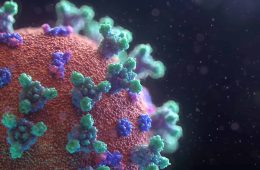how can we help you?
Contact us at the Consulting WP office nearest to you or submit a business inquiry online.
Having values, we offer strictly professional services and through the recognition and reputation of the A CERT, our associated companies and structures and strategic collaborators, we add value to the products, services, institutes and organizations giving them a competitive advantage and making them capable of achieving a dominant position in national and international level.

Certification for Energy Installations

Introduction:
This framework outlines a system for certifying compliance with established energy efficiency and performance standards.
Certification Bodies:
- a Cert assess entities (buildings, organizations, products) against the standards.
- a Cert employs qualified auditors to evaluate energy consumption data, systems, and implementation plans.
Certification Process:
- Application: Entities seeking certification submit an application to a certification body.
- Documentation Review: Assessors review energy policies, management plans, and efficiency measures.
- Data Analysis: Energy consumption data and efficiency calculations are scrutinized.
- Site Audits: Auditors conduct on-site inspections for verification (applicable for buildings/facilities).
- Corrective Actions: Identified non-conformances require corrective actions with verification.
- Certification Granting: Upon successful completion, a certificate is issued, valid for a specified period.
Standards:
International Standards:
- ISO 50001: Energy Management System – Provides a framework for establishing, implementing, and improving energy performance.
- Regional and National Standards
Additional Considerations:
Building Energy Codes:
Mandatory building codes set minimum energy efficiency requirements for new constructions.
Renewable Energy Standards:
Certification programs may promote the use of renewable energy sources.
Benefits of a Cert energy certification:
- Reduced Energy Consumption: Certification encourages implementation of energy-saving measures.
- Cost Savings: Lower energy bills for organizations and building owners.
- Environmental Protection: Reduced greenhouse gas emissions and contribution to sustainability goals.
- Market Recognition: Certification demonstrates commitment to energy efficiency, enhancing brand image.
- Policy Compliance: Fulfills mandatory building energy code requirements.
Conclusion:
An energy certification system plays a vital role in promoting energy efficiency and tackling climate change. By adhering to established standards and obtaining relevant certifications, organizations and individuals can contribute to a sustainable future, achieve cost savings, and gain recognition for their efforts.
Energy certification services
-

Quality Management System according to ISO 9001
Read moreCertification for a quality management system is no other than an official recognition of its actual implementation and introduces a competitive advantage for a company towards competition.
-

Environmental Management System according to ISO 14001
Read moreAn environmental management system according to ISO 14001:2015 includes all organizational structure, practices, procedures, sources and liabilities that a single company has to adopt
-

Management System for the petroleum industries according to ISO/TS 29001
Read moreISO/TS 29001 is a company level certification based on a technical specification published by the International Organization for Standardization (ISO) titled “Petroleum, petrochemical and natural gas industries — Sector-specific quality management systems — Requirements for product and service supply organizations”.
-

Information Technology Services Management System according to ISO 20000
Read moreInformation Technology Service Management System (ITSMS) according to ISO/IEC 20000. This standard applicable to any organization, large or small, in any sector or part of the world which relies on IT services.
-

Quality Management System for Medical Devices according to ISO 13485
Read moreA CERT certifies Quality Management Systems for the design, development, production, installation and service of products for Medical Devices according to ISO 13485:2003.
-

Occupational Health and Safety Management System according to ISO 45001
Read moreISO 45001 specifies requirements for an occupational health and safety (OH&S) management system, and gives guidance for its use, to enable organizations to provide safe and healthy workplaces by preventing work-related injury and ill health.
-

Information Security Management System according to ISO 27001
Read moreInformation Security Management System by ISO/IEC 27001:2005. A CERT certifies Information Security management systems according to the international standard ISO 27001:2005.
-

Rapid Test Devices
Read moreHigh performance rapid test enables immediate treatment or isolation measures to minimize transmission. Accessible, easy-to-deploy, large-scale testing helps contain the virus spread.
-

Coronavirus SAFE
Read moreNew Certification Standards for Preventing and Treating Covid-19 Pandemics are presented by the Certification Body “A CERT European Certification Organization SA” having as its main concern the safety and health of consumers.
-

Management System according to GMP/GMP+
Read moreThe feed industry is an important part of the food chain since what animals eat plays a crucial role in the safety and quality of the food, we derive from them. The GMP+ certification system is precisely tailored to the animal feed industry.
-

European Union Regulation requirements for registration
Read moreEuropean Union Regulation requirements for registration
-

Business Continuity Management System according to ISO 22301
Read moreISO 22301 is the international standard for Business Continuity Management (BCM). Published by the International Organization for Standardization, ISO 22301 is designed to help organizations prevent, prepare for, respond to and recover from unexpected and disruptive incidents.
-

Analytical Laboratory Services
Read moreThe range of services covers: Allergens, Medicines, Dioxins, Genetically modified Organizations (GMOs), Microbiology, Plant, Toxins, Environmental
-

Quality & Quantity Inspection
Read moreAs methodologies and processes for determining the quality and quantity of agricultural commodities have evolved over the years, it is imperative to apply the most current standards and technologies.
-

Pre Shipment Inspection (PSI)
Read moreA pre-shipment inspection (PSI) is a quality control process that involves inspecting goods before they are shipped to ensure they meet the required quality standards and specifications.
-

Intellectual Property and Intangible Assets
Read moreIntellectual property is a general term for the set of intangible assets owned and legally protected by a company from outside use or implementation without consent.
-

Damage Assessment
Read moreDamage Assessment is the process for determining the nature and extent of the loss, suffering, and/or harm to the community resulting from a natural, accidental or human-caused disaster.
-

Intellectual Property
Read moreIntellectual property is a general term for the set of intangible assets owned and legally protected by a company from outside use or implementation without consent.



